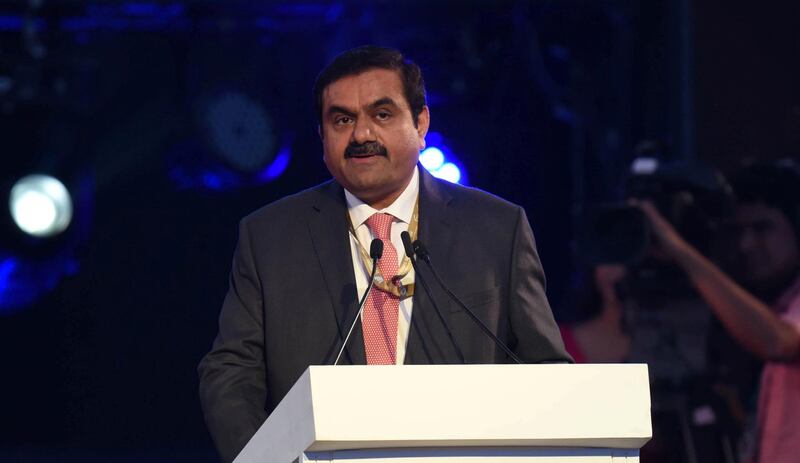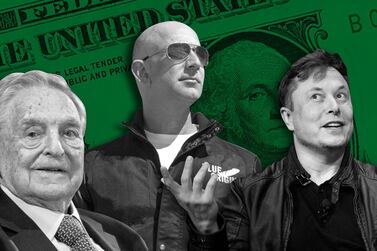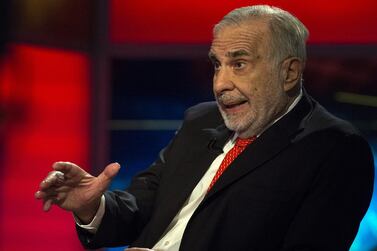Gautam Adani
Indian billionaire Gautam Adani’s dream run up the global wealth rankings faltered after a media report that raised questions about some offshore investors triggered a rout in his conglomerate’s six listed stocks.
The tycoon lost more money than anyone else in the world over the past week, with his fortune declining by about $13.2 billion to $63.5bn by Thursday, according to the Bloomberg Billionaires Index.
A few days earlier, Mr Adani, 58, had been closing the gap on Mukesh Ambani as Asia’s richest man. Four out of six Adani group stocks fell further on Friday, taking last week's sell-off to a fifth consecutive session.
The about-turn began on Monday after the Economic Times reported that India's national share depository had frozen the accounts of three Mauritius-based funds – Albula Investment Fund, Cresta Fund and APMS Investment Fund – because of insufficient information on the owners.
The bulk of the holdings in the funds – about $6bn in total – are shares in Mr Adani’s companies.
Although the Adani Group labelled the report “blatantly erroneous” and “done to deliberately mislead the investing community”, concerned investors rushed for the exit.
The Mauritius offshore funds hold more than 90 per cent of their managed assets in Adani Group companies, according to Bloomberg Intelligence. Adani Group said on Monday that the funds “have been investors in Adani Enterprises for more than a decade ... We urge all our stakeholders not to be perturbed by market speculations.”
In identical exchange filings on the same day, Adani Group companies said that they had written confirmation from the registrar and transfer agent that the offshore funds’ dematerialised accounts in which Adani shares were held were not frozen.
Albula and APMS said in separate statements dated June 14, which were sent by their management company IQ EQ Fund Services (Mauritius), that the funds were fully operational.
The relevant National Securities Depository Limited entry "for APMS Investment Fund shows a technical ‘account level freeze’ only that has absolutely no relevance to its normal FPI trading activities”, APMS said.
The shares of Adani Green Energy, the mogul’s most valuable asset, slipped by about 13 per cent last week in Mumbai. Adani Ports & Special Economic Zone was down 17 per cent while Adani Power, Adani Total Gas and Adani Transmission plunged by at least 22 per cent this week. Flagship Adani Enterprises fell by about 7 per cent.
However, Adani Ports and Adani Enterprises closed higher on Friday, paring some of the week’s losses.
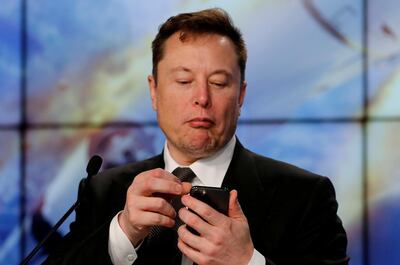
Elon Musk
Tesla chief executive Elon Musk has decided to sell the last of his houses a week after a report revealed that he and other billionaires paid little or no income taxes for several years.
Mr Musk, 49, said that he only has one house in the San Francisco Bay area that is being rented out for events and that if he sold, it “would see less use, unless bought by a big family, which might happen some day”.
He first announced plans to sell his homes and most of his possessions more than a year ago as a way to soften criticism of his wealth. Within days, he put two of his California properties on the market.
Earlier this month, ProPublica reported that Mr Musk, Amazon chief executive Jeff Bezos and Berkshire Hathaway chairman Warren Buffett have paid little income tax relative to their outsize wealth. The report quoted a trove of Internal Revenue Service data on tax returns for thousands of wealthy Americans. Mr Musk paid no federal income taxes in 2018 and less than $70,000 in 2015 and 2017, according to the report.
An IRS official said last week that the data leak had been referred to the FBI.
After the ProPublica report, Mr Musk tweeted that he would keep paying income taxes in California in proportion to his time in the state, which he said would be significant. He moved to Texas last year and said he now rents a house worth about $50,000 in Boca Chica from SpaceX, which has a launch site in the area.
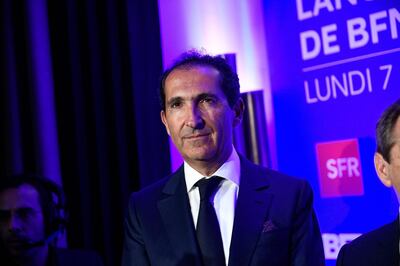
Patrick Drahi
Patrick Drahi bought a 12 per cent stake in the BT Group and pledged to support its high-speed broadband exercise, an unexpected move that marks a return to form by the deal-hungry French-Israeli cable billionaire.
Mr Drahi’s newly created company Altice UK acquired 1.2 billion shares in Britain’s dominant phone company, it said 10 days ago. The stake is worth about £2.2bn ($3.05bn) and makes him the company’s biggest shareholder.
The entrepreneur has a history of challenging the old incumbents in Europe’s telecoms industry and has often driven far-reaching change and forced asset sales at the companies he has invested in. More recently, he took a break from major deals to focus on paying down debt.
The new stake in BT is a significant surprise and a "proper curve ball", said Carl Murdock-Smith, an analyst at Berenberg.
Mr Drahi, 57, said he will use Altice’s expertise in fibre network installation to help BT expand its own.
The British company has been looking for a partner to help it instal an extra 5 million fibre optic connections by 2026, opening up its infrastructure to an external investor for the first time.
Altice said it has no plans to launch a full takeover bid for BT.
BT said that it welcomes “all investors who recognise the long-term value of our business and the important role it plays in the UK. We are making good progress in delivering our strategy and plan”.
Mr Drahi established himself by buying and selling small cable companies in France, before embarking on a debt-fuelled acquisition spree that turned his modest cable TV and phone group into one of the world’s biggest media and telecoms businesses.
The company is still saddled with €35bn ($41.6bn) in debt, according to data compiled by Bloomberg.

Cheng Wei
Cheng Wei, the billionaire co-founder of Chinese ride-hailing company Didi Chuxing, is poised to shoot up the ranks of the super-rich when his company lists in the US.
Didi last week filed for an initial public offering under its formal name of Xiaoju Kuaizhi and revealed that the Chinese entrepreneur owns 7 per cent of the company. With Didi reportedly trading at a value of about $95bn on the secondary market in recent months, that stake could be worth as much as $6.7bn, according to the Bloomberg Billionaires Index.
Co-founder and president Jean Liu owns a 1.7 per cent stake that could be worth $1.6bn. Eight other executives collectively hold about 1.8 per cent of the company, worth about $1.7bn in total.
It is the latest example of ride-hailing riches being minted in Asia as companies backed by Masayoshi Son’s SoftBank Group prepare to go public. Singapore-based Grab Holdings is poised to merge with a special purpose acquisition company while Indonesia’s GoTo Group is pursuing a listing by the end of the year.
“Ride mobility is one of the most significant growth industries in Asia,” said Gary Dugan, chief executive of the Global CIO Office in Singapore. The scale of the Didi offering “shows just how much economic value continues to be created”.
A Didi representative did not respond to a request for comment.
The ride-hailing company is counting on a remarkable post-pandemic recovery that hastened after China became the world’s first major economy to emerge from Covid-19. People returning to work and the resumption of travel helped revenue to more than double to 42.2bn yuan ($6.6bn) in the first quarter, reversing last year's decline.
Didi is one of the largest Chinese internet companies to tap into public markets in recent years, part of a second wave of start-ups aspiring to join Alibaba Group and Tencent in the upper echelons of the China's technology industry.
With more than 493 million annual active users mostly in China, the company was valued at $62bn after an earlier funding-raising exercise and has sought a valuation that is between $70bn and $100bn in the IPO.
